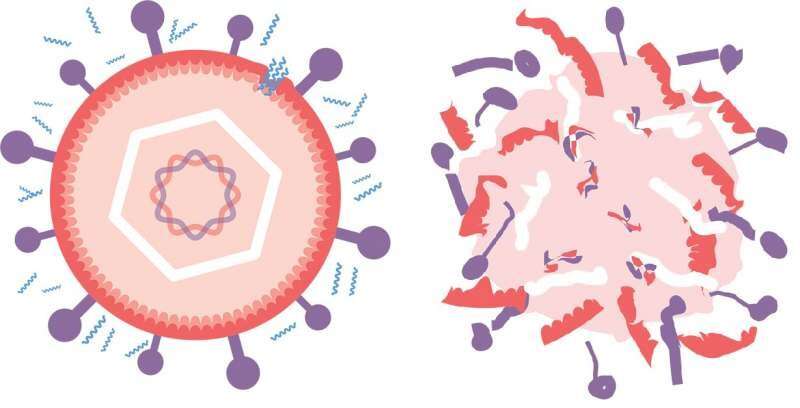Best of Last Week—New agents to fight COVID, Pfizer vaccine safety confirmed, flavonoid-rich foods help blood pressure

It was a good week for the biological sciences as a team at Maxwell Biosciences reported on their work that involved developing new agents that work against viruses that cause such diseases as COVID-19 and herpes. They have been focusing on creating synthetic peptides to bolster those that are part of the immune system. Also, a team with members affiliated with several institutions in the U.K. found that LED streetlights contribute to insect population declines, partly due to insects laying fewer eggs and partly due to over-eating. And a team of researchers from the U.S. and the U.K. learned something new about the physics behind a water bear's lumbering gait.
It was another good week for technology research as well, as an international team developed a way to increase storage capacity of rechargeable batteries by six times. The alkali metal-chlorine batteries work by making back-and-forth chemical conversions. Also, a team working at Loughborough University found a missing piece in the solar panel puzzle that they believe could lead to more efficient technology. And a team at the Ulsan National Institute of Science and Technology developed a new 3D printing ink that could be used to create tiny thermo-generators. Also, a combined group from the Technical University of Munich, Zhejiang University and Johns Hopkins University developed a vision-based robotic system for 3D ultrasound imaging.
In other news, a pair of researchers, Andrea Mazzino with the University of Genova and Marco Edoardo Rosti with OIST, Japan uncovered some secrets of COVID-19 transmission that were revealed in turbulent puffs, using simulations running on a supercomputer. Also, the Clalit Research Institute, working with researchers from Harvard University, conducted the largest real-world study of the Pfizer/BioNTech BNT162B2 COVID-19 vaccine and found it to be safe.
And finally, if you have high blood pressure, you may want to check out work done by a team with members from institutions in Germany and Northern Ireland. They found a link between gut bacteria and flavonoid-rich foods that could be used to reduce blood pressure levels.
© 2021 Science X Network